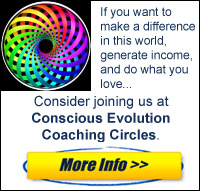Transforming Rage into Right Action
2013
I have always had to go deeply into my own rage in order to bring it into the light to heal. If I don’t allow myself to feel the rage, I cannot heal either myself or others. Not allowing myself to feel it is like clamping a lid on a boiling pot of water. Eventually, it boils over in uncontrolled ways.
Feeling the rage does not mean acting it out against others. But what then do we do with this powerful emotion?
When my husband refused to leave his mistress for the sake of our marriage and family, at first I felt shock, disbelief, and deep numbing pain. I sobbed at night for hours.
Then suddenly the pain transformed into rage. I felt disrespected and betrayed, not only by the man I had married and trusted, but also by the woman I had once believed was my best friend. I deserved so much better, as did our children. Together, my husband and his mistress had relegated me to nothing more than a convenient maid, cook and babysitter. I felt used without my consent so that they could go off and play.
I felt like buying a gun and killing them both, but didn’t want to spend the rest of my life in jail; nor did I want to leave my children orphans. What was I to do with this boiling rage which had suddenly appeared in my life? I was between a rock and a hard place. I had tough moral decisions to make.
Rage serves valuable spiritual purposes.
One, for me, was the release of self-righteousness. I knew from personal experience how it felt to want to murder. If I were capable of murder, how could I ever judge another person who was going through a similar traumatic inner struggle?
A second was the realization that rage was a messenger. It was telling me I needed to grow and change. But how?
Change does not mean getting rid of rage. Change means transforming rage into constructive, nonviolent action that supports values of fairness, safety, justice, mutual respect, and courage.
The children and I had needed my husband’s financial and emotional support and protection while the children were growing up. He had abandoned us all mentally and emotionally. I had no choice but to learn how to protect both myself and our children as well as I could.
I divorced my husband, dropped his surname, went back into the job market, fought for half of our assets in court, took care of our children as well as I could, applied to law school, graduated cum laude, and was offered a position as an associate attorney with a large Atlantic City law firm. Later, I opened my own law practice.
Ultimately, my rage transformed into a deeper understanding of what the Buddhist Eightfold Path calls “right action.” There is conduct that supports human cooperation, respect, love, justice, harmony, abundance, and peace, as well as conduct that disrupts them. “Right action” supports the values we all cherish where everybody wins. It is the arena of morals, ethics, and the Ten Commandments. Committing adultery destroys marriages and families.
This is not a path I desired. Rather, it seems to have chosen me, and yes, it has been challenging and a constant overcoming.
I have had to learn to stop enabling injustice without myself being unjust, stop enabling disrespect without being disrespectful, stop enabling abuse, control, and manipulation without myself becoming abusive, controlling, and manipulative. I have had to learn to be very transparent in expressing my needs and offering support to others.
I have also had to learn to be just, respectful, loving, forgiving, and grateful toward myself so that I know how to be just, respectful, loving, forgiving, and grateful toward others. I have had to walk out of many unjust, disrespectful, and abusive relationships to protect my own soul and sanity. Only then have I been able to re-engage these same people from a more expanded, deeper, and transformed awareness.
Under no circumstances do I believe others are evil. Their intentions, in ignorance and lack of awareness, are simply directed toward goals that serve only themselves at the expense of others. They have their own spiritual lessons to learn and their own karma to live.
Has my path been the path of the spiritual warrior? Are we all spiritual warriors grappling with the rage within so that we can transform it into passionate purpose?



Comment